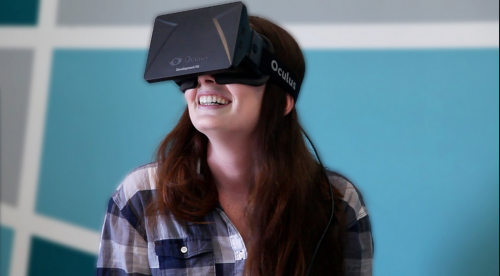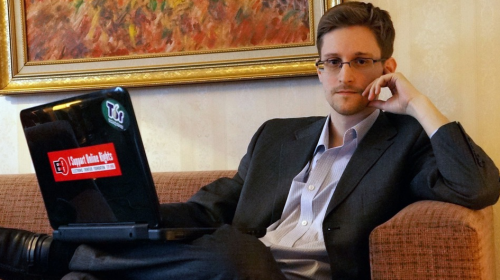The evolution of social in 2015
We’re just a week into 2015 but, as is tradition for this time of year – no-one is focused on today. We’re all talking about what will be going on by the end of the year, or even beyond.
Of course, future gazing like this is important, particularly in the fast-moving world of social media. At the beginning of 2014, Facebook still had (some) organic reach and the term ‘vlogger’ wasn’t exactly commonplace. Over the year, instant messaging apps soared in popularity and image centric networks saw huge success.
In 2015 we’ll see many 2014’s trends develop, along with new ones. We’ll see a platform-led approach to social media become less important. Rather than Facebook and Twitter executions, the focus will be on understanding social behaviour, creating ideas that people want to share, talk about and get involved with. Alongside this, the now-mature social industry will be working to prove to brands the value of its efforts.
Of course, there are similarities and differences in the challenges and opportunities facing different markets around the world. As We Are Social’s reach spans eight offices in five continents, we’ve asked our senior management worldwide about how they see the social landscape changing this year.
Sandrine Plasseraud, Managing Director, France
Digital Transformation
The digital economy is nothing new, however its fast pace is drastically impacting companies. 90 percent of the world’s data has been created in the last couple of years. Instead of surviving on one-off campaigns, brands need to create ongoing storytelling to be visible within this data driven world. Content creation is no longer enough. We now have algorithm curation tools, like Facebook’s, making things complicated. Companies are battling for attention – the notion of ‘continuous partial attention’ highlights the fact that individuals now divide their attention among different devices, daily activities and real life conversations, in a desire to be recognized amongst their peers and avoid fear of missing out. How, as a company, do you grab consumers’ attention in this landscape, capturing them on them on the go, without interrupting their daily routines? This will be an even bigger challenge with the arrival of smartwatches and the rise of ‘glance media’ associated with it.
Content production will need to take into account ambient proximity and potentially the emotion of users in the near future. The digital scene has been an extremely complex one for businesses, but is becoming even more so in 2015 and beyond. The need for digital transformation is crucial. Most companies claim to have embraced digital transformation, but in reality they have focused on technologies and channels rather than on their organisation and their employees. They now need to put consumers at the centre of their organisation, forget silos, think brand utility i.e. how to be useful to consumers rather than focus on technology and platforms. This is what we call Social Thinking.
Leila Thabet, Managing Director, US
Mobile Default replaces Mobile First
A cell phone hasn’t been “just a phone” for a long time, but more than ever smartphones and tablets are becoming the primary digital gateway for consumers. The reality of Mobile First, in which mobile serves as a platform for driving innovation, is being replaced by a new Mobile Default, in which mobile becomes the primary means for consumer engagement. As these new norms take shape in the hands (and on the wrists) of consumers, brands should be prepared to find new ways to offer value and engage in these diverse, always on contexts. Easy to use applications, image-led, concise campaigns will prove vital for brands if they want to use mobile effectively in capturing user attention and telling their brand story.
Jim Coleman, Managing Director, UK
24/7 Marketing
The popularity of social media means the time to engage with consumers is not dictated by marketers, it’s led by the target audience’s lifestyle and their preferences. Many brands that we work with cater to a global audience, taking this one step further again. As our editorial director Charlie Cottrell wrote in the Guardian earlier this year, publishing models should now reflect consumers’ 24/7 behaviours. Marketers will need to take their audience’s habits and behaviours into account when creating and publishing content across any platform. They will need to analyse the data generated from their content (with a focus on business, not just social results) to learn what works and what doesn’t, resulting in a more effective long-term strategy.
Gabriele Cucinella, Stefano Maggi, Ottavio Nava; Managing Directors, Italy
Influencer engagement will strike back
In a world where all you need is reach – the right reach – and relevance, influencers are still one of the best and most effective tool brands can leverage to talk with specific target audiences. We will see a change in the form of collaboration between brands and influencers, from the one shot outreach approach (mainly earned media) to a more structured partnership model (mainly paid media) where the two parties can collaborate regularly to co-create a long term narrative.
In search of content and conversation
In 2015 people will have more and more tools to find content, and the platforms they find it on will change. Google won’t be the only tool people use to search, social platforms like Facebook and Twitter are presenting solid solutions for people who are looking for specific information; people will choose the channels they are already using every day as search platforms. In this important shift, social media will be a great destination to search for content, and brands will start planning their strategies to reflect this, thinking about social channels as a search channels as well.
Bastian Scherbeck, Managing Director, Germany
Explosion of Social Performance
In 2015 “social performance” (performance optimized paid media in social channels), will explode as percentage of total media spend. This poses a both a risk and an opportunity. If done well, analytical expertise and social intelligence will help deliver relevant content (anything from text to interactive experiences), at the right time and place, to people who you know will care about it. However, if it’s done badly (as it often has been so far), it will result in the delivery of irrelevant content to huge numbers of people, with marketers doing it “just because it is cheap” compared to ATL advertising. If the advertising industry wants to thrive and prosper in a digital today and a digital future, it is essential that we use our tools and power, responsibly. Otherwise, we might lose the most important currency we have: people’s trust.
The focus on performance also poses another risk: it shouldn’t come at the expense of true creativity and innovation, with marketers falling into a “target group” mindset. Instead of outdated behaviours like this, a new mindset – what we call ’social thinking’’ – is needed.
Mobbie Nazir, Chief Strategy Officer
Content ROI
If 2014 has been the year of content creation, 2015 will be the year of content ROI. Continue to build content, but be smart about it. It’s hard to produce quality content in quantity, so think about how anything created can be leveraged and re-purposed. Ditch thinking about social as a free-place market. As with any form of advertising, inventory on social is limited and will go to the highest bidder. Make your investment work by taking the time to really dig deep on audience segmentation and targeting on advertising on the social platforms that are right for your brand. Measure the effectiveness of your investment by how your work affects your sales, not just your likes and followers. This is how the most successful, impactful activity on social will stand out in 2015 and prove the value of investing in social media.
Leslie Orsioli, Managing Director, Brazil
The rise of YouTube
YouTube is the second most accessed social network in Brazil, according to the ranking prepared by Serasa Experian. In the United States, the audience is so great that beats any cable network. Strategies focused on YouTube will become essential not only because of the number of people accessing it, but because campaigns developed on the platform offer a wider reach across the social and digital landscape.
Simon Kemp, Regional Managing Partner, Asia
The increasing importance of Discovery
As social becomes more ingrained in people’s daily lives, ‘word of mobile’ takes over some of our more day-to-day search activities. People will be asking each other for answers as often as they ask Google, and while many of these conversations will be ‘hidden’ on closed networks like WhatsApp and WeChat, many will also take place in more public platforms like Twitter.
Don Anderson, Managing Director, Singapore
Hyper-Experiential Sharing
The initial seeds of a new era of Hyper-Experiential Sharing may surface in 2015 with the introduction of Oculus Rift, which is already expected to change the dynamics of gaming, film and a host of non-entertainment related industries. The real potential of this technology becoming ubiquitous will depend on whether users will be able to capture POV experiences — be it hurtling down a 30 metre drop on a pair of skis to summiting Everest — and then share across social networks in the same way we do with video and photos. If that possibility becomes reality, then Facebook’s purchase of Oculus makes even more sense.
Nathan McDonald, Co-Founder of We Are Social
Innovation, addiction and the new normal
The explosion of blogging that created an alternative universe of media and opinion was a liberating era, full of exciting possibilities, in contrast to the mainstream, broadcast-led approach of the last decade. Since then we’ve seen the pendulum swing in the other direction, with concerns over the impact of monetization, commercial and government use of data, and the physical, psychological, and social impacts of internet and device usage. These worries will co-exist with an inherent techno-optimism about new innovations. Even as we start to fetishise wearable hardware (which gathers ever more intimate personal data), we’ll be checking in family members for Facebook addiction clinics.
Even with the Snowden revelations in mind, we’ll demand more online services from governments, and see political parties take leaps ahead in their use of social and digital marketing techniques. The backlash against the increased monetization of our favourite social networks will be accompanied by an ever increasing reliance on social networks to facilitate our lives. As all this becomes the new normal, the pendulum swings ever faster.




